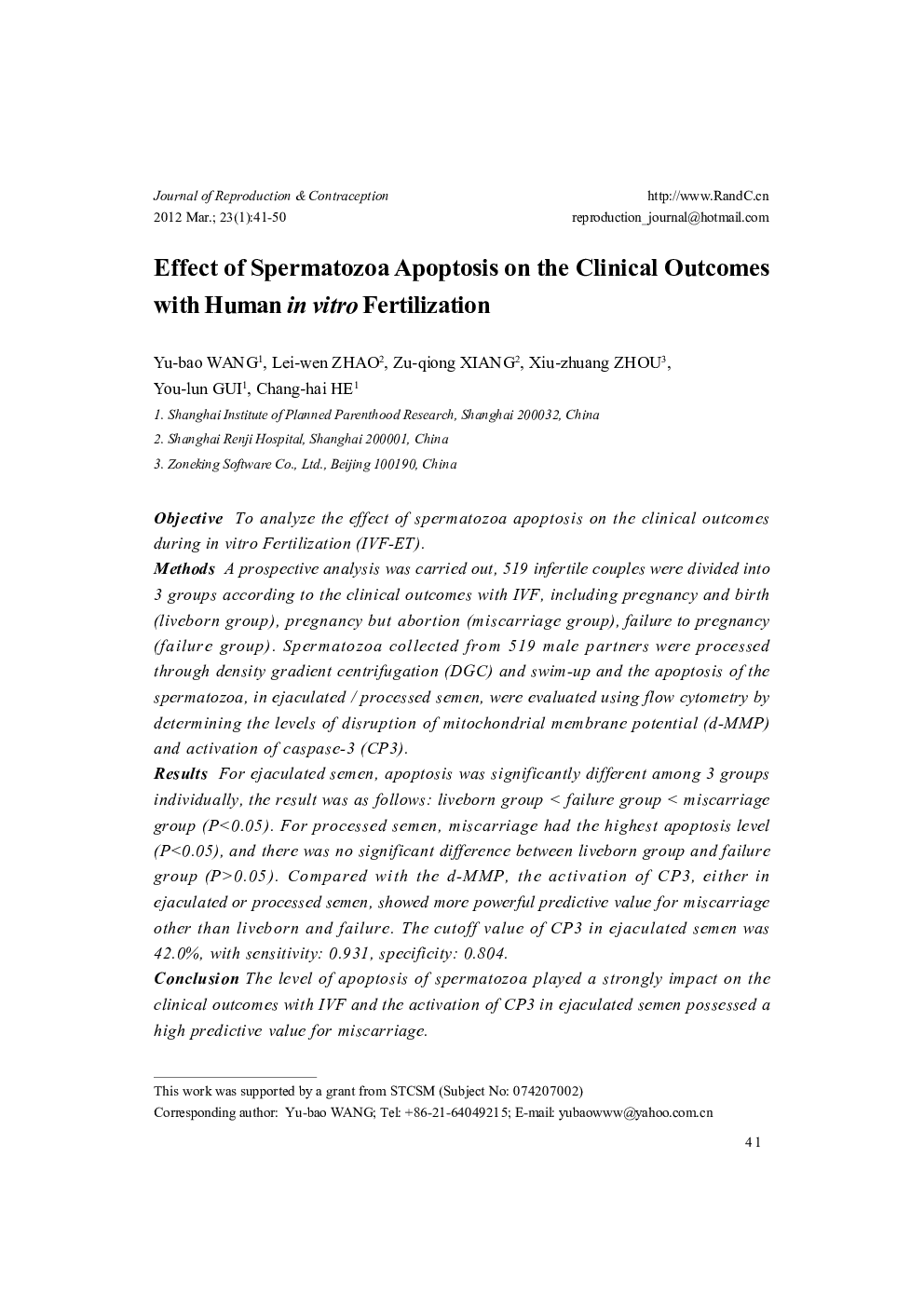| Article ID | Journal | Published Year | Pages | File Type |
|---|---|---|---|---|
| 3963419 | Journal of Reproduction and Contraception | 2012 | 10 Pages |
ObjectiveTo analyze the effect of spermatozoa apoptosis on the clinical outcomes during in vitro Fertilization (IVF-ET).MethodsA prospective analysis was carried out, 519 infertile couples were divided into 3 groups according to the clinical outcomes with IVF, including pregnancy and birth (liveborn group), pregnancy but abortion (miscarriage group), failure to pregnancy (failure group). Spermatozoa collected from 519 male partners were processed through density gradient centrifugation (DGC) and swim-up and the apoptosis of the spermatozoa, in ejaculated / processed semen, were evaluated using flow cytometry by determining the levels of disruption of mitochondrial membrane potential (d-MMP) and activation of caspase-3 (CP3).ResultsFor ejaculated semen, apoptosis was significantly different among 3 groups individually, the result was as follows: liveborn group < failure group < miscarriage group (P<0.05). For processed semen, miscarriage had the highest apoptosis level (P<0.05), and there was no significant difference between liveborn group and failure group (P>0.05). Compared with the d-MMP, the activation of CP3, either in ejaculated or processed semen, showed more powerful predictive value for miscarriage other than liveborn and failure. The cutoff value of CP3 in ejaculated semen was 42.0%, with sensitivity: 0.931, specificity: 0.804.ConclusionsThe level of apoptosis of spermatozoa played a strongly impact on the clinical outcomes with IVF and the activation of CP3 in ejaculated semen possessed a high predictive value for miscarriage.
